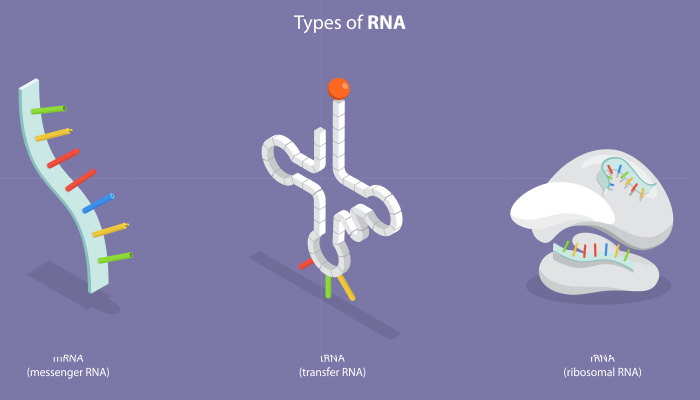Analysis of previously unstudied areas of the human genome suggests people with more copies of ribosomal DNA have higher risks of developing disease.
IMB’s Professor David Evans collaborated with Professor Vardhman Rakyan and Francisco Rodriguez-Algarra from Queen Mary University of London’s Blizard Institute on a study of ribosomal DNA (rDNA). This is the DNA that codes for ribosomal RNA (rRNA), which is fundamental to making proteins in cells.
This is the world's largest genetic analysis of rDNA, which is present in hundreds of copies in the genome. This new study of 500,000 individuals indicates that people who have more copies of rDNA are more likely to develop inflammation and markers of disease during their lifetimes.
Unexplored sequences of the genome
Standard genetic analysis techniques have not previously studied these areas of the human genome which are repetitive. These results suggest that wider genome analysis could bring opportunities for preventative diagnostics, new therapeutics, and greater insight into the mechanism of different human diseases.
“Geneticists have long struggled to fully explain the genetic basis of many common complex traits and diseases,” Professor Evans said.
“Our work suggests that at least part of this missing heritability resides in difficult-to-sequence regions of the genome, such as those encoding the variation in the number of copies of rDNA.”

Inflammation and kidney function
The researchers found that the number of copies of rDNA in an individual showed strong statistical association with well-established markers of systemic inflammation – such as Neutrophil-to-Lymphocyte ratio (NLR), Platelet-to-Lymphocyte ratio (PLR), and Systemic Immune-Inflammation index (SII).
These statistically significant associations were seen in the genomes of individuals of different ethnicities, suggesting a common indicator for risks of future disease.
rDNA copy number was also linked with an individual’s kidney function within the sample of individuals of European ancestry.
A similar effect was seen in samples from other ancestries, but further research using larger sample sizes will be needed to confirm this connection.
Harnessing the power of genetics
“Our research highlights the importance of analysing the whole genome to better understand the factors impacting on our health,” Professor Rakyan said.
“This study is also an example of how having access to large biobanks allows us to make unexpected discoveries, and provides new avenues for harnessing the power of genetics to understand human diseases.”
The study was funded by Barts Charity, Rosetrees Trust, and the Biotechnology and Biological Sciences Research Council (BBSRC).
The research was published in Cell Genomics.

This study included data from the UK Biobank – a large-scale biomedical database and research resource containing anonymised genetic, lifestyle and health information from half a million UK participants. UK Biobank’s database, which includes blood samples, heart and brain scans and genetic data of the volunteer participants, is globally accessible to approved researchers who are undertaking health-related research in the public interest.



